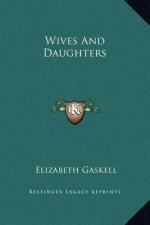Another perplexity and distress at this time weighed upon Roger. Osborne, heir to the estate, was going to have a child. The Hamley property was entailed on ‘heirs male born in lawful wedlock.’ Was the ‘wedlock’ lawful? Osborne never seemed to doubt that it was—never seemed, in fact, to think twice about it. And if he, the husband, did not, how much less did Aimee, the trustful wife? Yet who could tell how much misery any shadows of illegality might cast into the future? One evening Roger, sitting by the languid, careless, dilettante Osborne, began to question him as to the details of the marriage. Osborne knew instinctively at what Roger was aiming. It was not that he did not desire perfect legality in justice to his wife; it was that he was so indisposed at the time that he hated to be bothered. It was something like the refrain of Gray’s Scandinavian Prophetess: ’Leave me, leave me to repose.’
‘But do try and tell me how you managed it.’
‘How tiresome you are, Roger,’ put in Osborne.
‘Well, I dare say I am. Go on!’
’I’ve told you Morrison married us. You remember old Morrison at Trinity?’
‘Yes; as good and blunder-headed a fellow as ever lived.’
’Well, he’s taken orders; and the examination for priest’s orders fatigued him so much that he got his father to give him a hundred or two for a tour on the Continent. He meant to get to Rome, because he heard that there were such pleasant winters there. So he turned up at Metz in August.’
‘I don’t see why.’
’No more did he. He never was great in geography, you know; and somehow he thought that Metz, pronounced French fashion, must be on the road to Rome. Some one had told him so in fun. However, it was very well for me that I met with him there for I was determined to be married, and that without loss of time.’




